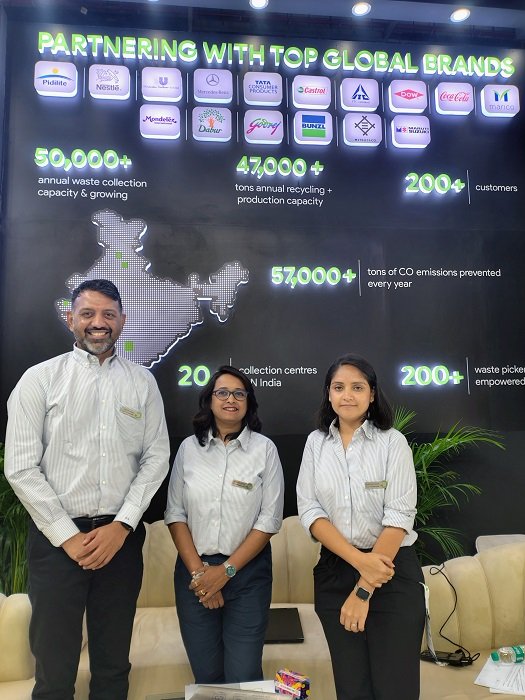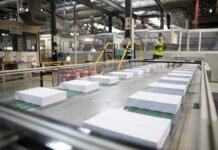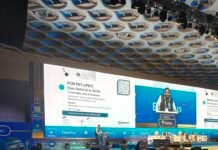
Mumbai-based Lucro is an integrated waste management company that collects waste material through its 16-plus collection centers. The company’s circular economy model comprises plastic waste, which is segregated, washed, and converted into HDPE, LDPE, and PP granules.
“While most of the LDPE granules are used in-house to manufacture the company’s own flexible packaging, the HDPE granules are used to make HDPE containers for Pidilite, Castrol, and a few other companies,” Pratibha Dewett, CSO at Lucro, told Packaging South Asia.
The company participated in the second edition of the Global Conclave on Plastics Recycling and Sustainability (GCPRS) in Delhi in June to showcase its latest innovations and operational traceability in its products. Dewett said a QR code software called Satma assists Lucro with operational traceability, from collection to packaging.
Lucro manufactures flexible packaging with 30-80 % recycled content going into industrial packaging, including bunding rolls, stretch wraps, and shrink films. The flexible packaging films are supplied to FMCG companies such as Coca-Cola, Dabur, Nestle, Mondelez, HUL, Marico and automotive companies.
The company has two waste collection centers in Mumbai and the rest in Umbergaon in Gujarat. “Transportation cost is huge, so we try to source the raw material locally. Manufacturing takes place at the Gujarat facility, from where we supply recycled industrial packaging all over the country. Our material goes to Siliguri, Coimbatore, Tamil Nadu, Karnataka, Kerala and Assam. Our garbage bags are exported to the US, UK and Germany,” she said
According to Dewett, Lucro’s capacity is 17,000 metric tons per year and is looking at expanding in the northern and southern belts. “Though our exports have come down in the last 3-4 years, domestic demand has gone up, she said.
Lucro launched primary non-food FMCG packaging in India, used by Unilever in Surf Excel and other laundry detergents, Dewett said. “While Lucro provides the granules, another converter has been hired by Unilever to manufacture the packaging,” she added.
“Plastic waste recycling in India is picking up with the government introducing EPR policies. The EPR mandate ensures that companies use some amount of recycled materials in their packaging. Because of these policies, there has been an uptake in demand. A lot of stakeholders have shown interest in funding waste management companies,” she concluded.










